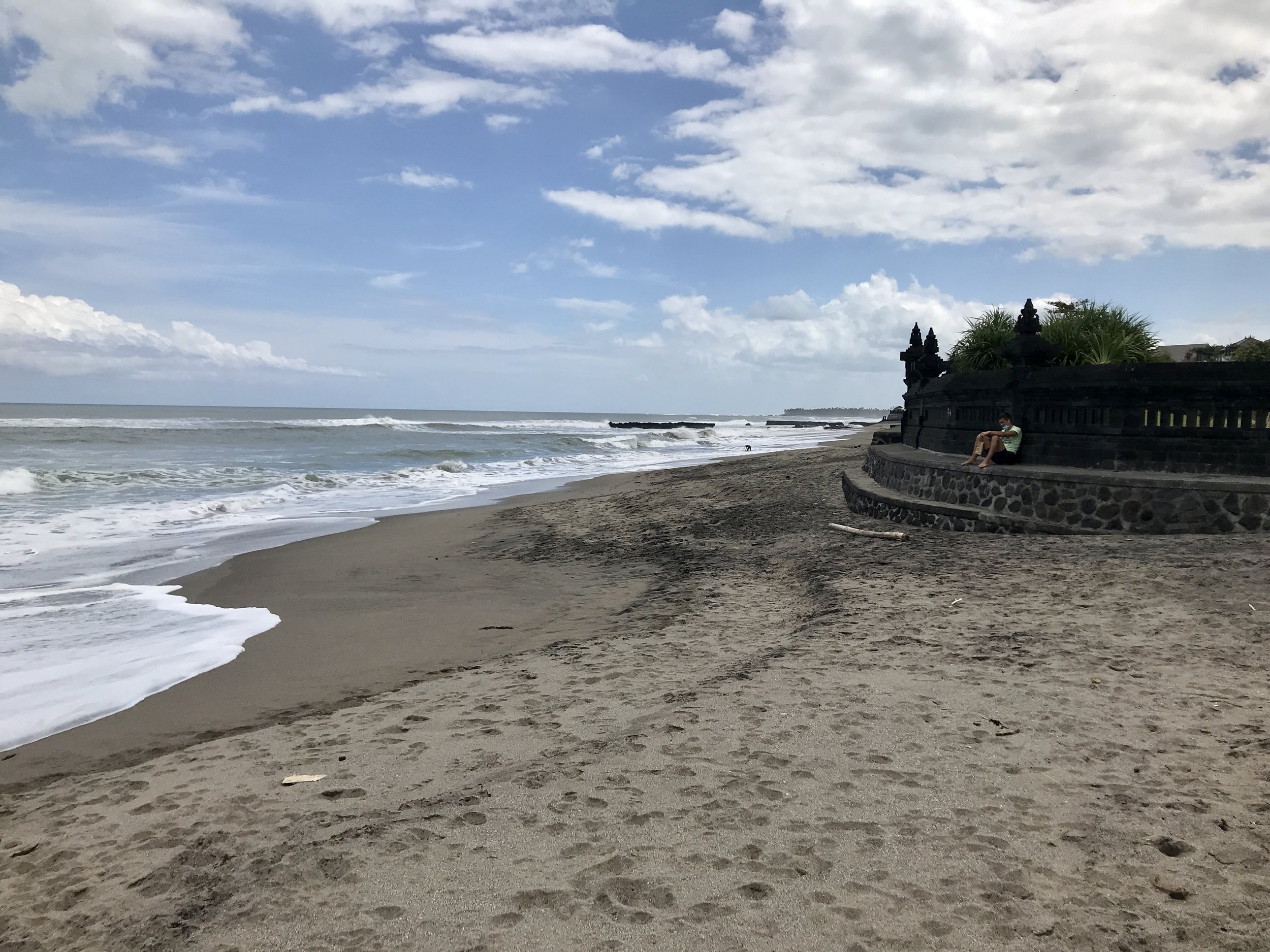Bali reopens to tourists: Requirements for visitors and what to expect
Traveller
It's official. Bali, Indonesia's paradisiacal tropical island renowned for its hospitality, on Friday opened its borders to all countries.
Following a year of limited international flights and virtually no tourists, foreign travellers are once again welcome to visit the island.
On Thursday, Garuda Indonesia flight GA881 from Tokyo to Denpasar marked a milestone, one day early, when it became the first direct international flight to touchdown in Bali in almost two years. Nikkei Asia reported the flight had just 12 passengers, who entered on business visas, but the touchdown was nevertheless celebrated with a welcoming ceremony at the airport.
Batu Bolong beach, Bali - Pic Penny Watson
Indonesian government officials have stated plans for a staged and gradual re-opening. The entry requirements, laid out this week in the government's official COVID circular, are similar to those currently in place in capital Jakarta, with some tweaks. Fully and partially vaccinated travellers will need to quarantine on arrival for five and seven days respectively.
With no visa-on-arrival scheme in place, it's reasonable to assume the border will not open properly until Singapore Airlines resumes its flights from Singapore to Bali on February 16. Australians wanting a direct flight will have to wait until March 1, when Jetstar resumes flights from Melbourne and Sydney to Denpasar. Qantas will also resume direct flights later that month.
Despite Friday's opening, Jetstar currently has no plans to bring flights forward while the five-day quarantine requirements remain in place.
"We're currently reviewing the entry and quarantine requirements for travellers into Bali and will provide an update if there are any changes to our flights" a spokesperson said.
All travellers will require the B211A short-visit entry visa, along with negative RT-PCR tests on arrival and before departing quarantine.
In addition, travellers will need proof of confirmed (and paid-up) hotel accommodation for the duration of their stay, and adequate health insurance ($A35,000 minimum) to cover COVID-19 medical expenses should they arise.
On Thursday the government released the names of five initial quarantine resorts - The Westin and Grand Hyatt, both on Nusa Dua; Griya Santrian Beach Resort, Sanur; Viceroy Bali Luxury Resort, Ubud; and Royal Tulip Springhill Resort, Jimbaran – with 4470 rooms in total. While some quarantine resorts were offering packages suggesting guests would be able to make use of facilities and not be confined to their rooms, it is not clear whether this would be allowed under the government's rules.
So what to expect from Bali beyond quarantine?
The past year has been a quiet one for international tourists, but domestic travellers – the familiar COVID story of nationals exploring their own backyard - have stepped in to take up some of the slack. If not fully operational, hotels and resorts have had periods of activity with at least skeleton staff retained and standards largely maintained. This extends to COVID-safe protocols. At minimum, guests can expect hand sanitiser, temperature checks and masks on arrival along with physical distancing, strict cleaning procedures, hand washing stations and staff health checks during a stay. (The joy of seeing breakfast buffets back in business is partly diminished by the fact they're no longer self-serve).
Down time over the past year has also been an opportunity for soft openings. Raffles Bali, in Jimbaran Bay; Australian co-owned Tira Vilagna resort, in Kintamani, and Kuta's Mamaka by Ovolo, are among a healthy list of new accommodation venues offering reassurance that the tourism industry will eventually get back to normal.
Bali's buzzy food scene is similarly geared up to welcome foreigners back. Restaurants and cafes, shuttered beyond recognition three months ago, have dusted off the outdoor tables, recruited staff and now offer heavily discounted menus to get bums back on seats.
In the popular expat areas of Canggu and Berawa, on Bali's southern shores, the island's flashy day clubs – known for their double-bed recliners, DJ sets and creative cocktails, have reinvented themselves with the likes of new menus, upskilled chefs and more sustainable business practices. Cool new eateries, such as Santanera and Mosto, have all the street-cred that you'd expect in Sydney. Now is a good time to reserve a table and be assured of getting a seat.
Masks have been mandatory since July, and the population generally adheres to the regulations (or risks being pulled over by police). They are required when entering shops, bars and restaurants, in public, and when riding in taxis and on motorbikes. There's a more relaxed approach on the beach and when sitting down to dine.
Visitors will need to have Indonesia's ubiquitous Peduli Lindungi COVID app, which can be scanned for contact tracing when entering public places. Proof of vaccination (physical or digital) is also required when entering shopping malls and large commercial tourist attractions.
For all the buzz, there are reminders that Bali has had a tough time. Empty shopfronts in Seminyak and Kuta still have "for lease" signs dangling in their windows. Ubud's tiny back streets, once alive with souvenir shops, warung eateries and clothing boutiques, remain empty. The waves have kept rolling in on Bali's beaches but business for coconut vendors, knick-knack sellers and surf instructors has not. They will be very pleased to have you back.
Penny Watson is currently based in Bali.
UPDATE: An earlier version of this story stated guests in hotel quarantine resorts would not be allowed to leave their rooms. It is not currently clear whether or not this is the case.
